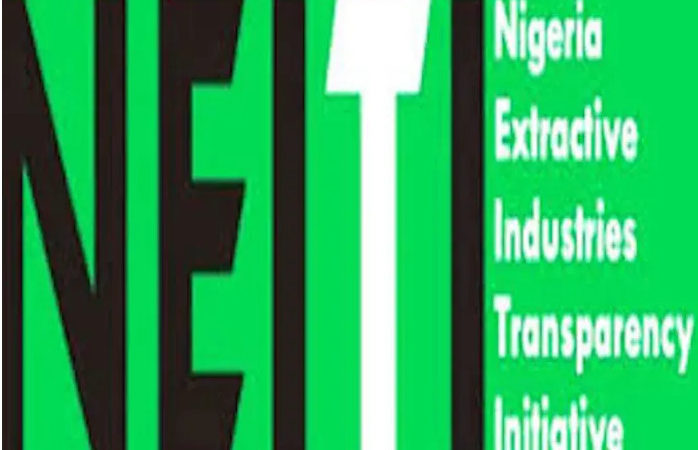NEITI: Companies Owed FG N1.32trn In 2020, Oil Revenue Dipped By 40%

- $394bn remitted to government in 10 years, 4% of Nigeria’s gas production unaccounted for
The Nigeria Extractives Industries Transparency Initiative (NEITI) yesterday revealed that oil companies’ liabilities to the federation as at December 31st 2020, was N1.32 trillion or $3.17 billion compared to the N2.6 trillion owed in 2019.
Giving highlights of the NEITI 2020 oil and gas industry report released in Abuja, the Executive Secretary of the organisation, Dr. Ogbonnaya Orji, stated that the number of defaulting companies also dropped from 77 in 2019 to 51 in 2020.
The reports presented were the oil and gas as well as mining and Fiscal Allocation and Statutory Disbursement documents for the year under review.
Orji stated that the current debts were collectable revenues that due to the Federation by the defunct Department of Petroleum Resources (DPR) and the Federal Inland Revenue Service (FIRS).
Specifically, the liabilities in question included royalty oil, royalty gas, concession rentals, petroleum profit tax, company income tax, education tax, value added tax, withholding tax among others.
The executive secretary stated that NEITI’s disclosure sought to draw the attention of the oil and gas companies to their obligations to remit all revenues due to government, especially at a time that government is in dire need of revenues.
Without the companies, there will be no industry, no investments and no revenues to remit. So NEITI will continue to support the companies and also expect that they live up to their obligations, as regard to payment of taxes, royalties and levies to the federation, as they do in other jurisdictions of their operations,
Orji stated
According to the report, Nigeria earned $20.43 billion from the oil and gas sector in 2020, representing a decline of 40 per cent compared to the $34.22 billion realised from the sector in 2019.
On remittances to the Federation Account from the oil and gas sector, the report disclosed that $14.65 billion, representing 71.17 per cent of the total earnings in 2020, was remitted to the account, while total aggregate financial flows from the oil and gas sector to government in 10 years (2011-2020) was $394.029 billion.
The report also revealed that the total crude oil production in 2020 was 646.7mmbbls, representing a 12 per cent decrease when compared to the 735.24 mmbbls produced in 2019.
Out of the above total production in 2020, 648.48 mmbbls were lifted, which was 11.85 per cent lower than the 735.66mmbbls lifted in 2019.
On domestic crude allocation and consumption, the NEITI report also disclosed that 107.746mmbls was managed by the NNPC under the Direct-Sale-Direct Purchase (DSDP) arrangement.
It also revealed that the value of the crude exchanged under the DSDP arrangement was $6.7 billion, while the value of the refined products received for local consumption was $6.03 billion, indicating a variance of $134.78 million.
On fuel subsidy, the NEITI report further disclosed that N106.9 billion was paid as subsidy between January and June 2020 to sustain product availability with an outstanding balance of N26.74 billion yet to be paid.
NEITI also reported that 20.01 billion litres of petrol, 52 million litres of kerosene and 5.33 billion litres of diesel were respectively imported into the country for domestic use during the period under review.
On oil theft and crude losses, the report made assessment based on the data provided to NEITI by 22 of the 69 covered companies.
According to the result of the assessment, 39.16mmbls of crude valued at $44.73million (N15.71 billion) was stolen with 349 cases of pipeline vandalism recorded in 2020. This is an improvement when compared to the 1,387 cases of vandalism reported in 2019.
On gas production, the report revealed that the gas sub-sector contributed over $1.5 billion to the Federation Account, with total gas production in 2020 being 3.01 million cubic feet, while 64 per cent of the total quantity was sold and eight per cent flared, while four per cent was unaccounted for.
The NEITI report also showed that the oil and gas sector contributed only 8.16 per cent to the total GDP in 2020, representing a decline of 0.46 per cent when compared to the 8.62 per cent recorded in 2019.
The report further revealed that the sector dominated the country’s export in 2020, contributing about 75 per cent (N9.44 trillion) of the total export value of N12.52 trillion.
Furthermore, it made far reaching recommendations, including the urgent need for further investigations into the circumstances surrounding the transfer of the federation’s stake in OML 24 operated by Pan Ocean and New Cross Energy.
NEITI’s concern is on the value for money of the transaction, payment for the federation equity interest and recovery of the $309.1million that should have been paid for the asset,
it stated.
Furthermore, the report welcomed the Petroleum Industry Act (PIA) and the prompt decision of President Muhammadu Buhari to set up a nine-member committee, including NEITI, to oversee its implementation.
The report was the 13th cycle of independent oil and gas industry report by the NEITI in line with the NEITI Act 2007 and in fulfilment of Nigeria’s obligation to the global Extractive Industries Transparency Initiative (EITI).
The report reconciled payments from 83 entities, including 69 oil and gas companies, 13 government agencies and the Nigerian Liquefied Natural Gas (NLNG). The audit was conducted by Taju Audu & Co., an indigenous accounting and auditing firm.
Earlier, the Chairman of NEITI Board, Mr. Olusegun Adekunle, stated that the 2020 reports provided useful insights into the current state and future fate of Nigeria’s natural resources.
He commended the federal government for the political support and its non-interference in the EITI process in Nigeria, assuring that the board was committed to ensuring that NEITI reports compliment government’s efforts at maximizing revenue generation.

Justin Nwosu is the founder and publisher of Flavision. His core interest is in writing unbiased news about Nigeria in particular and Africa in general. He’s a strong adherent of investigative journalism, with a bent on exposing corruption, abuse of power and societal ills.













